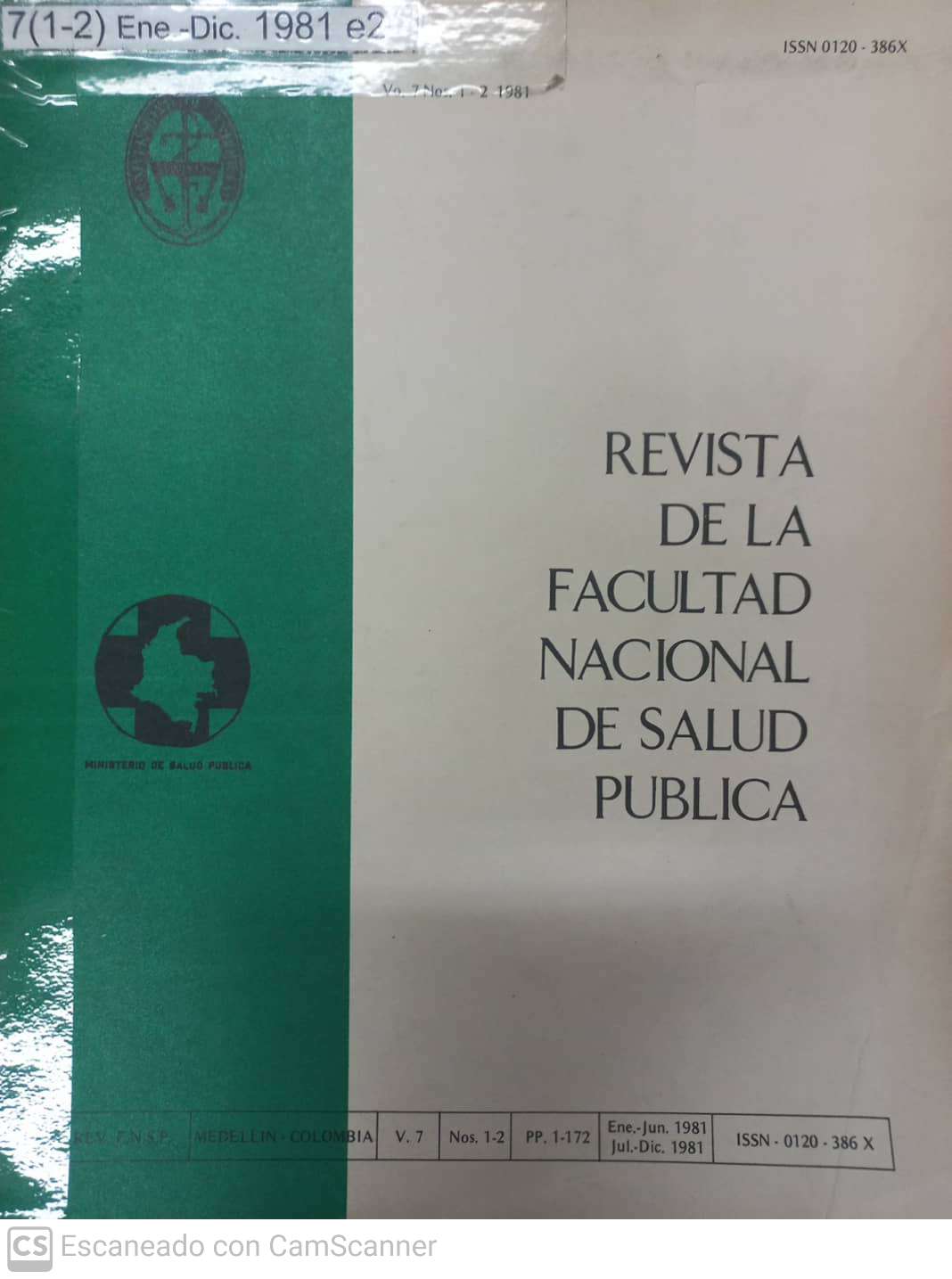LOS RIESGOS DEL TRABAJO
Abstract
The Joint Expert Committee on Occupational Health of the International Labour Organization (ILO) and the World Health Organization (WHO) has proposed the following definition:
“Occupational health aims to promote and maintain the highest degree of physical, mental and social well-being of workers in all occupations; to prevent deterioration of health caused by working conditions; to protect them in their occupations from hazards resulting from harmful agents; to place and maintain workers in a manner suited to their physiological and psychoLogical aptitudes; and, in short, to adapt work to man and each man to his work.”
Downloads
References
Patty, Frank A., ed. Industrial Hygiene and Toxicology. New York, John Wiley, 1965, 2 v.
Powel, Charles H. and Hosey, Andrew D. The Indus- trial environment. Its evaluation and control. Washing- ton, U. S. Government Printing office, 1973 (Publica- tion, 614)
Accident Prevention Manual for Industrial Operations. Chicago, 111, National Safety Council, 1978.
Enciclopedia de Salud Ocupacional. Ginebra, OIT, 1976, 2 v.
Bloomfield, J.J. Introducción a la Higiene Industrial. México, Reverté, 1963.
Heinrich, H.W. Prevención de accidentes industriales.
Seguridad Industrial México, Centro Regional de Ayuda Técnica. 8 manuales.
Blake, Roland P. Seguridad Industrial. México, Deana, 1973.
Published
How to Cite
License
Copyright (c) 2024 Jorge Puerta S

This work is licensed under a Creative Commons Attribution-NonCommercial-ShareAlike 4.0 International License.
The contents of the articles are the responsibility of the authors
The editorial committee has editorial independence from the National School of Public Health "Héctor Abad Gómez" of the University of Antioquia.
The editorial committee is not responsible for aspects related to copying, plagiarism or fraud that may appear in the articles published in it.
When you are going to reproduce and disclose photographs or personal data in printed or digital format, informed consent is required. Therefore, this requirement is required of the author at the time of receipt of the manuscript.
Authors are responsible for obtaining the necessary permissions to reproduce any material protected by reproduction rights.
The authors preserve the moral rights and assign the economic rights that will correspond to the University of Antioquia, to publish it, distribute electronic copies, include them in indexing services, directories or national and international databases in Open Access, under the Creative Commons Attribution license -Not Commercial-Share Equal 4.0 International Commercial (CC BY-NC-SA) which allows others to distribute, remix, retouch, and create from the work in a non-commercial way, as long as the respective credit and license are granted. new creations under the same conditions.
The authors will sign the declaration of transfer of economic rights to the University of Antioquia, after the acceptance of the manuscript.
The editorial committee reserves the right to reject the articles whose authors do not offer satisfactory explanations about the contribution of each author, to meet the criteria of authorship in the submission letter. All authors must meet the four criteria of authorship according to ICMJE: "a) .- That there is a substantial contribution to the conception or design of the article or to the acquisition, analysis or interpretation of the data. b) That they have participated in the design of the research work or in the critical review of its intellectual content. c) .- That has been intervened in the approval of the final version that will be published.d). That they have the capacity to respond to all aspects of the article in order to ensure that issues related to the accuracy or integrity of any part of the work are adequately investigated and resolved. "








 --
--  --
--
